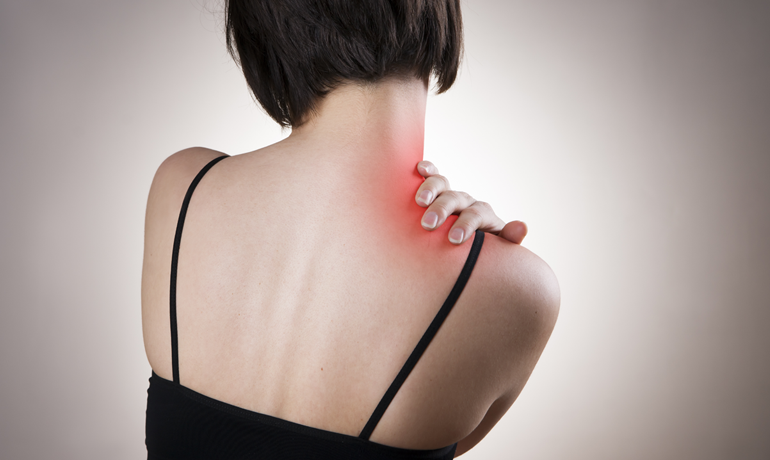
40-year old woman, 2.5 years post shoulder surgery, after which she was diagnosed with a right brachial plexopathy with sensory neuropraxia and severe chronic pain affecting the right upper extremity
Work
Limited work history in this country as a housekeeper
ADL
Olivia now relies on all one-handed methods using the once non-dominant left hand as primary to dress, bathe, groom, feed, and drive; depends on friends and family for homemaking
Right Upper Extremity Findings
- Altered sensibility and vasomotor changes
- Minimal abilities to move the arm at all pivots without pain exacerbation
- Shoulder mobility deficits of 90-95% in all planes
- Painful and limited elbow, forearm and wrist mobility
- Minimal active finger mobility with < 25% fisting and inability to use the thumb for prehension
- 100% loss of functional strength
- Minimal dexterity skills for only brief usage
- Inability to integrate the hand/arm into bilateral lift/carry patterns
- Inability to use the hand as the once dominant hand; or to write, type, grasp, hold, lift or carry
- Increased hand/arm pain of 10/10 and coldness in conjunction with minimal movement
Conclusions
Related to Olivia’s Chronic Regional Pain Syndrome which developed following shoulder surgery 2.5 years prior, this Hand/Upper Extremity evaluation findings indicate that Olivia has severe functional deficits in conjunction with significantly elevated pain levels that prevent her from using the once dominant right hand/arm to even minimally perform once routine activities of daily living for self-care, homemaking, recreation or work. She now depends on 1-handed performance methods to care for herself and drive, and friends for homemaking. Olivia cannot return to her prior work that requires bimanual hand skills. Based on her education and past work, she has no transferrable skills to resume work and would need job training if she were to resume work where she can rely on only the left hand/arm. Olivia’s ongoing debilitating pain is further felt to have a huge negative impact on her overall quality of life. Ongoing pain management is recommended.
